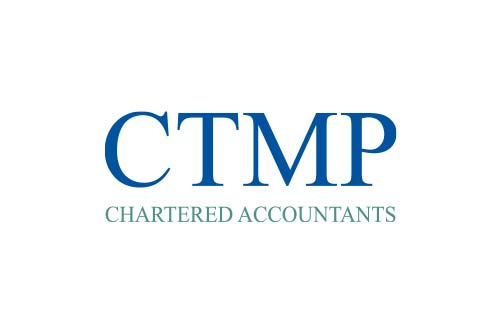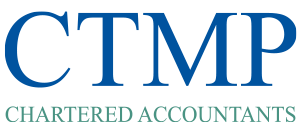
12 May How To Ensure Compliance In The Education Sector Accounting
In the education sector, managing finances can be a complex task. Whether you’re overseeing a single school or managing an academy trust, there’s a lot to juggle. From ensuring financial transparency to complying with strict regulations, it’s easy to feel overwhelmed. With deadlines for audits, tax filings, and other financial requirements, it’s crucial to have the right support in place. One small mistake can lead to bigger issues, including fines or even legal trouble.
That’s why understanding how to stay compliant with all the rules is essential for schools and academies. This topic is about ensuring your educational sector meets the accounting compliance standards set by regulations and governing bodies.
Are you confident that your academy’s finances are fully compliant with regulations? CTMP Accountants can help with everything from audits to payroll and VAT, ensuring your financial management is hassle-free and compliant.
Contact us today on 0208 776 0200 or email info@ctmp.co.uk to find out how we can help your academy maintain financial compliance and peace of mind.
At CTMP Accountants, we believe in delivering reliable, transparent, and expert financial services that help your business or academy thrive, no matter the complexity.
Understanding Regulatory Requirements For Educational Sectors
In the UK, the education sector accounting compliance is governed by strict rules, especially for academies, colleges, and universities. Regulatory bodies, such as the Education and Skills Funding Agency (ESFA) and the Charity Commission, have laid out clear guidelines that all institutions must follow to ensure financial compliance in schools.
These frameworks are not just suggestions—they are legally binding requirements that are part of the broader education accounting regulations.
Key Governing Documents
- Academy Trust Handbook (ATH): Formerly known as the Academies Financial Handbook, this is the primary source of guidance for academies. It outlines expected standards for internal controls in education accounting, budgeting, and procurement.
- Companies Act 2006: Applicable to charitable companies, which include most academies.
- Charity Commission Guidance (CC15d): Essential reading for trustees responsible for finances in charitable educational institutions.
Failing to meet these expectations can result in intervention by the ESFA, as well as reputational damage and loss of funding.
Common Areas Of Compliance Risk
Effective risk management in education accounting begins with identifying where compliance often breaks down. Here are some of the most common areas of concern:
- Incorrect VAT treatment: Educational institutions often operate in a complex VAT landscape. Without specialist advice, institutions may claim incorrect amounts or miss out on recoverable VAT.
- Improper use of restricted funds: Many grants, and government funds come with specific usage guidelines. Misallocation—even if unintentional—can violate school accounting regulations.
- Payroll and pension errors: From Teachers’ Pensions to Local Government Pension Schemes (LGPS), accuracy is vital to ensure compliance in education accounting.
- Weak financial controls: Lack of oversight or dual control can lead to fraud or mismanagement.
- Inadequate audit trails: When documents are missing or disorganised, it jeopardises your financial audits in the education sector.
Having robust policies in place is key to complying with education accounting rules and passing audits with confidence.
Also Read: Avoiding Common Accounting Mistakes
Best Practices For Educational Sectors To Stay Compliant
To build a strong financial foundation, here are the best practices to adopt:
1. Strengthen Internal Controls
- Implement dual authorisation on all payments.
- Separate duties between staff for income and expenses.
- Regularly test and review internal controls.
This directly supports education sector accounting compliance and builds a culture of integrity.
2. Invest In Staff Training
Equip your finance and admin staff with the tools and understanding to navigate education accounting standards. This could include:
- Workshops on school accounting regulations
- Webinars from the ESFA or the Charity Commission
3. Use Sector-Specific Software
Adopt financial software designed for schools and academies to streamline reporting and enhance regulatory compliance. Examples include PS Financials and Access Education.
4. Conduct Internal Audits
Annual or semi-annual internal audits are vital. They uncover potential issues before they’re flagged in statutory audits, helping you ensure full compliance in education accounting.
5. Keep Up With Regulatory Changes
The rules can change annually. Subscribing to regulatory updates and consulting with experts helps your institution stay current and ensure compliance with accounting regulations.
6. Take Help From Professionals
Partnering with experienced accountants in the education sector gives your institution access to deep expertise and compliance insights.
- Professional advisors help interpret school accounting regulations and prepare ESFA returns.
- They offer guidance on risk mitigation, VAT efficiency, and audit readiness.
- Ongoing support from experts ensures your systems align with the latest expectations around accounting compliance.
Engaging professionals ensures your organisation continues complying with education accounting expectations year after year, safeguarding your funding and reputation.
Contact us
How CTMP Helps Educational Institutions In Croydon
At CTMP Accountants, we specialise in supporting educational institutions throughout Croydon and beyond. Our team understands the nuances of school accounting regulations, ensuring you never fall behind on compliance.
We provide end-to-end accounting support tailored to the education sector, including:
- Preparation of statutory accounts and liaison with auditors
- Budget forecasting and financial planning
- VAT compliance and planning for academies and colleges
- Payroll processing, pensions administration, and HMRC filing
- Support with ESFA returns and funding applications
- Internal audits and risk reviews for governance assurance
Whether you operate a primary school, secondary school, academy, college or university, contact CTMP to help you maintain strong financial systems that align with the latest education accounting standards and government guidelines.
Complying with education accounting rules requires both sector knowledge and technical expertise. With our proactive guidance, your institution can avoid penalties and stay ahead of deadlines.
We bring together local knowledge, technical accounting precision, and sector-specific compliance guidance, backed by years of experience in education sector accounting compliance.
Conclusion
Navigating the education sector accounting compliance doesn’t have to be stressful. With the right systems, staff training, and expert support, your school or academy can stay fully aligned with education accounting standards and thrive financially.
Whether you need help with financial audits in the education sector, strategic budgeting, or just ensuring basic accounting compliance, CTMP is here to help.
Contact us on 0208 776 0200 or email info@ctmp.co.uk to schedule your compliance check-up today.


